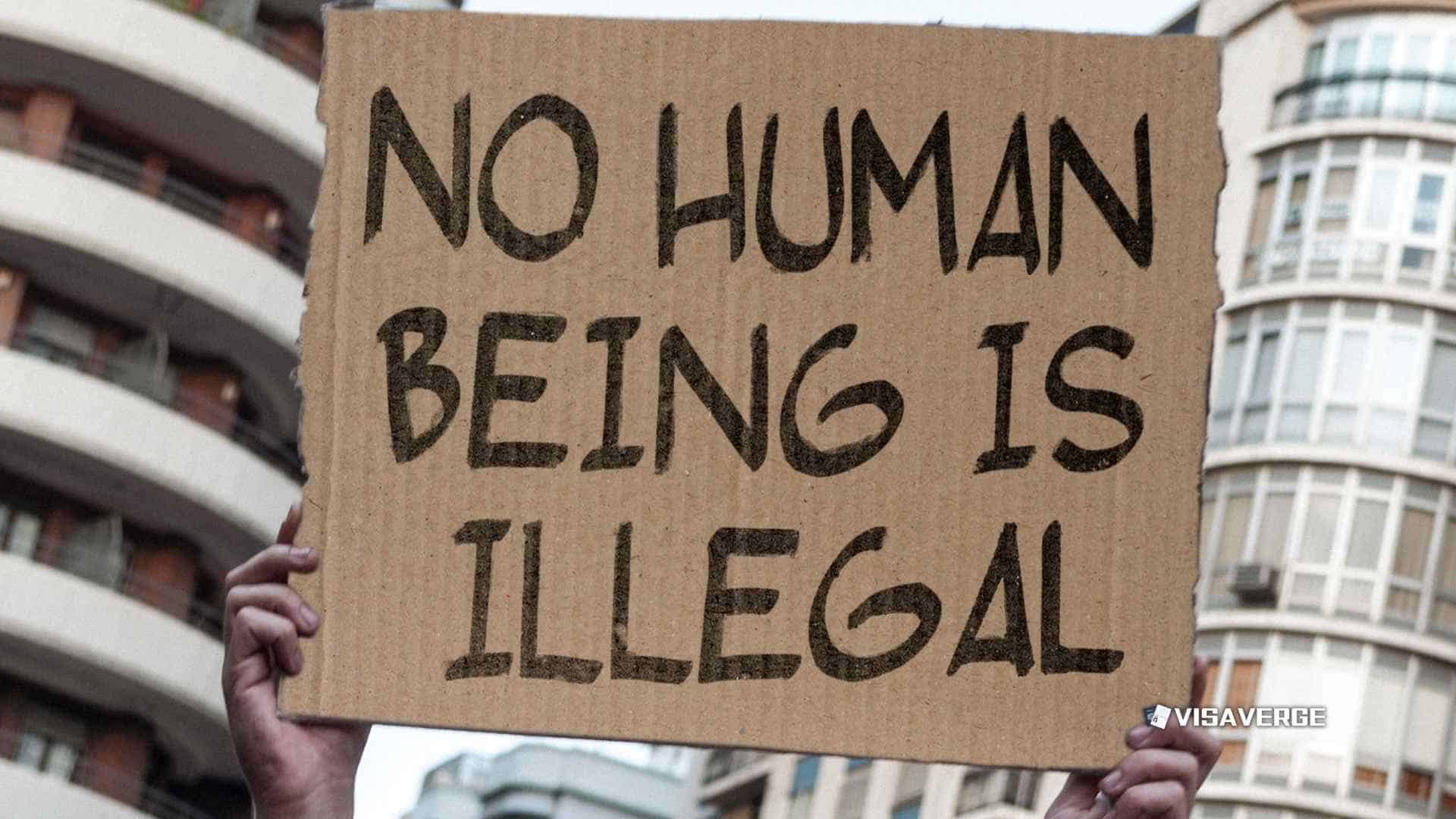Key Takeaways
• U.S. Embassy in Stockholm demanded an end to city DEI programs in May 2025, using unusually strong language.
• Stockholm leaders, including the Social Democrat chairman, publicly rejected embassy orders with emphatic statements.
• This rare public dispute has raised concerns about diplomatic practices and future U.S.-Swedish negotiations regarding local policies.
Tension has risen between the U.S. Embassy in Stockholm 🇸🇪 and the city’s leadership due to direct demands from the embassy over Stockholm’s Diversity, Equity, and Inclusion (DEI) programs. Recent reports from May 6-7, 2025, show this dispute has become quite public and is drawing attention both in Sweden 🇸🇪 and, by extension, within diplomatic circles. What follows is an in-depth look at this unfolding episode, what facts are available, and what it means for U.S.-Swedish 🇸🇪 relations, for American citizens abroad, and for local approaches to inclusion.
A Sudden Diplomatic Flashpoint

The core fact is straightforward: The U.S. Embassy in Stockholm, currently led by Chargé d’Affaires Mark Evans, has asked—or, as some reports say, demanded—that the city put a stop to all of its DEI programs. These DEI programs aim to support fairness, acceptance, and opportunity for everyone in local communities—goals that are often debated in many countries, including both Sweden 🇸🇪 and the United States 🇺🇸. The unusual part isn’t disagreement over DEI policies themselves, but rather the way this issue has spilled into open, tough-sounding diplomatic exchanges.
According to posts from May 6-7, 2025, the embassy’s message used the word “OBEDIENCE,” which many saw as unusually strong or blunt language for a diplomatic mission. The tone set off alarms within City Hall, and various Swedish 🇸🇪 officials, including the leading Social Democrat chairman, responded with an emphatic refusal. The chairman reportedly fired back, “NOT A CHANCE IN HELL,” leaving no doubt where the city’s leadership stands on outside interference in local policy.
Understanding the U.S. Embassy’s Role in Stockholm
Embassies serve as official offices connecting one government to another. According to the official U.S. Embassy in Sweden page, their main job is to represent American interests, help American citizens in that country, and work on issues shaping relations between the two countries. It is rare for an embassy to instruct—or, as appears in this case, demand obedience from—a host city concerning local government policies like those involving DEI.
Usually, embassies might share suggestions or concerns through private messages or discussions between officials. The public, direct nature of the U.S. Embassy’s recent message, at least as characterized in available reports, stands out as unusual in the long history of U.S.-Swedish 🇸🇪 diplomacy.
DEI Programs: What They Are and Why They Matter
Before exploring the diplomatic arguments, it’s worth understanding what DEI programs do. These programs aim to help everyone feel welcome and treated fairly, no matter their background, gender, race, or beliefs. In practical terms, this can mean hiring more people from different groups, making sure public services are open to all, teaching about respect and fairness in schools, or holding city events that help people learn from each other. Supporters argue that such efforts make communities healthier and happier. Critics, sometimes, worry these programs may lead to unfair treatment in the other direction or become political.
In Stockholm 🇸🇪, as in many major cities, there is a long history of public debate about these ideas, including city-led efforts to promote fairness and inclusion.
Why Would the U.S. Embassy Take This Step Now?
At this stage, the specific reason for the U.S. Embassy’s message about Stockholm’s DEI programs isn’t spelled out in the sources. The embassy’s main job is not to set or overturn city policies in Sweden 🇸🇪 . This makes the reported demand even stranger and has led experienced watchers of U.S.-Sweden 🇸🇪 relations to call the move “bizarre.”
If such a demand did come directly from Chargé d’Affaires Mark Evans, or the team under his leadership, it would mark a sharp turn from the usual business-like tone embassies use. Most diplomatic instructions are handled privately because public disputes over sensitive issues can cause confusion, resentment, or even damage the close friendship between countries.
Reactions From Stockholm and Beyond
Stockholm’s leaders wasted no time making their opposition clear. The Social Democrat city chairman’s strong language—“NOT A CHANCE IN HELL”—shows this issue hasn’t just caused concern; it’s sparked anger. Other local leaders and city employees have also voiced their support for keeping DEI programs running.
Analysis from VisaVerge.com suggests this kind of public dispute is rare, especially between the United States 🇺🇸 and Sweden 🇸🇪 , two countries that usually work together even when they don’t always agree. Even so, the open exchange has quickly become a flashpoint in Swedish 🇸🇪 political conversation, and it may have lasting effects on how other Swedish 🇸🇪 cities or groups interact with foreign diplomats, especially Americans.
How Are American Citizens in Sweden 🇸🇪 Affected?
For American citizens in Sweden 🇸🇪, the main function of the U.S. Embassy remains unchanged. Americans living, working, or studying in Stockholm 🇸🇪 still rely on the embassy for passports, emergency help, and visa questions. However, the embassy’s focus on local Swedish 🇸🇪 policy about DEI, rather than only U.S.-centered tasks, has led some to ask whether this is a good use of diplomatic energy.
Conflicts between local governments and foreign embassies can also affect the day-to-day lives of expatriates in more subtle ways. Tensions might make city services a bit slower for foreigners or raise questions about the embassy’s goals among the local population.
What Does This Say About U.S.-Swedish 🇸🇪 Relations?
While Sweden 🇸🇪 and the United States 🇺🇸 usually share close economic, political, and defense ties, open disagreements about local Swedish 🇸🇪 policies are rare. Diplomats spend years building trust so that, even when there are differences, they can talk privately and keep work moving smoothly.
This public dispute breaks with that pattern. When one country’s embassy calls for “OBEDIENCE” from a city council over policies like DEI, it sends shock waves through usual diplomatic channels. It can make both sides feel less friendly or make it harder to solve small day-to-day problems affecting travelers, students, or businesspeople.
Broader Policy Background
DEI programs remain a subject of debate in both Sweden 🇸🇪 and the United States 🇺🇸. In the past, some American state-level leaders have rolled back or questioned DEI efforts in the U.S. 🇺🇸, saying such policies can go too far or leave others out. Others say that focusing on inclusion creates richer, more welcoming communities.
Sweden 🇸🇪, meanwhile, is often seen as one of the world’s most open countries regarding human rights and inclusion, but these policies are not without political debate there, too. This means the embassy’s demand cuts across long-running discussions in both countries.
Possible Reasons and Implications
Without clear details from the U.S. Embassy, it’s impossible to say for sure why such a strong demand was made about Stockholm’s DEI programs. However, the timing, language, and diplomatic break with custom are all remarkable.
- Some observers think the embassy may be responding to pressure or instructions from U.S. government officials, though there is no public proof of this so far.
- Others suggest this could be an isolated move by a particular embassy leader who disagrees with the city’s policies.
- There may also be worries about how Stockholm’s DEI efforts could affect American citizens, businesses, or other interests in Sweden 🇸🇪, though, again, this is not confirmed in reports.
For Swedish 🇸🇸 city officials, a public demand from a foreign embassy, especially one using the word “OBEDIENCE,” crosses a line most diplomats respect. For their part, Stockholm’s leaders show no sign of making changes, suggesting the issue could continue to shape city policies or get more attention in elections.
What Happens Next?
Several things could happen as the situation unfolds:
- The U.S. Embassy in Stockholm 🇸🇪 could clarify, change, or take back its earlier message. This might cool the situation and return relations to normal.
- Stockholm’s leaders may ask for talks with the embassy or the U.S. State Department, which supervises embassies around the world.
- Both sides could agree to keep talking in private, hoping to defuse tensions and avoid making things worse in public.
- The public fight could make other Swedish 🇸🇸 cities even less willing to listen to outside influence, not just on DEI but on other local matters.
A Look at U.S. Embassy Operations
For anyone interested in how the U.S. Embassy in Stockholm 🇸🇪 usually operates, the official website offers useful details. The main goal is always to look after American citizens and promote good relations. You’ll find information on travel warnings, help with lost passports, and statements on issues shaping the partnership between the United States 🇺🇸 and Sweden 🇸🇸.
Embassy heads like Chargé d’Affaires Mark Evans manage teams that deliver all these services. However, their authority over local Swedish 🇸🇸 policies is usually very limited. This is why the embassy’s demand in this case is causing such a stir.
Political and Legal Limits
International law, including the Vienna Convention on Diplomatic Relations, sets limits on what embassies can do. Embassies can explain their country’s views and ask for fair treatment, but local governments and cities are still free to make their own decisions. Stockholm 🇸🇸 officials’ refusal to follow orders from a foreign mission fits within these rules.
How Might This Influence Policy Elsewhere?
Any change in the way U.S. embassies interact with local DEI programs abroad could spark similar tensions elsewhere. For cities and countries that value self-rule, the idea that a foreign government might demand changes to local equality policies may lead to stronger laws protecting municipal independence.
In Sweden 🇸🇸, this battle has already made the news, and it is likely to be discussed in other towns and cities. City officials may want to stress their right to decide on inclusion and fairness policies, without being told what to do by foreign embassies.
Closing Thoughts
This case offers a rare, close-up look at what can happen when two powerful ideas—local control and foreign diplomacy—collide in public. With direct calls for “OBEDIENCE” from the U.S. Embassy in Stockholm 🇸🇸 over the city’s DEI programs, local leaders have chosen not just to disagree, but to make their refusal just as public and just as strong.
For American citizens in Sweden 🇸🇸, business and student groups, and even tourists, it is important to keep in mind that such disputes rarely affect daily life in a lasting way. Still, this case shows how quickly unexpected disputes can raise big questions about power, fairness, and respect between countries.
As more details come out, it will be worth watching how both the U.S. Embassy in Stockholm 🇸🇸 and Swedish 🇸🇸 leaders talk about this issue, and whether a path can be found to restore the calm and respect that usually shape their long-standing partnership. For official statements, updates, or to understand how embassies work, you can always visit the U.S. Embassy in Sweden page.
For now, Stockholm’s leaders have made their position clear: whatever happens with U.S. policy, the city intends to keep its DEI programs running, showing the limits of outside influence on Swedish 🇸🇸 local governance.
Learn Today
DEI Programs → Initiatives promoting Diversity, Equity, and Inclusion in workplaces, schools, and government to advance fair treatment of all people.
Chargé d’Affaires → A diplomat acting as the head of an embassy in absence of the official ambassador, managing diplomatic activities and staff.
Diplomatic Flashpoint → A sudden, public escalation of disagreement between nations, often leading to strained diplomatic relations or negotiations.
Vienna Convention → An international treaty outlining rules and protections for embassies, diplomats, and the conduct of diplomatic missions worldwide.
Expatriates → People residing in a country different from their native one, often for work, study, or long-term living arrangements.
This Article in a Nutshell
Tensions soared as the U.S. Embassy in Stockholm demanded “obedience” over DEI policies, sparking a rare diplomatic dispute. City officials firmly refused, defending autonomy and inclusion programs. The ongoing clash may reshape local-federal relations and prompt debates worldwide about diplomatic boundaries in diversity policy and local governance.
— By VisaVerge.com
Read more:
• Bibby Stockholm Operator to Manage More Migrant Hotels After Shake-Up
• Canadian airlines cut U.S. vacation routes as summer demand drops
• Pakistan International Airlines Privatization Faces New Delay
• Sweden Repeals ‘Track Change’: What It Means for Work Permit Holders
• Turkish Citizenship Granted to Iranian Gang Members, Indictment Alleges













